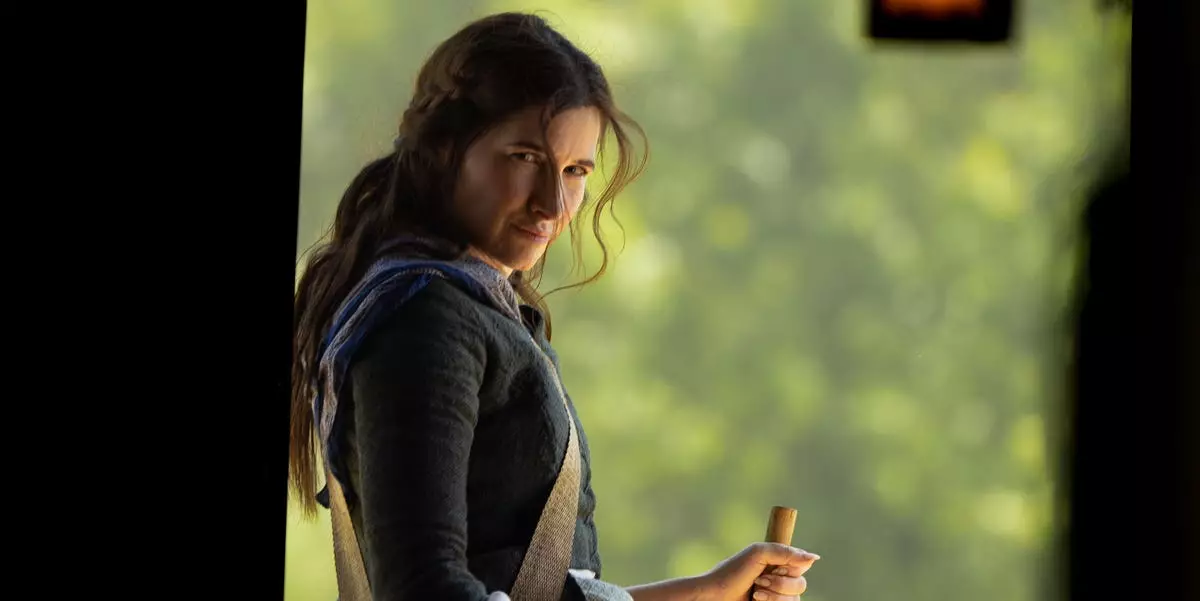In an era defined by cinematic universes, Marvel has become synonymous with the tradition of post-credits scenes. These moments have captivated audiences, serving as teases for future films, offshoots, or witty callbacks that enrich the overarching narrative. However, with the latest Disney+ series “Agatha All Along,” fans were met with an unexpected twist: the absence of a post-credits scene. As showrunner Jac Schaeffer clarified in an interview, the choice was rooted in a broader directive from Marvel’s higher-ups. In an industry where expectations run high, this deviation prompts a deeper exploration of its implications.
Agatha Harkness, played brilliantly by Kathryn Hahn, is indeed a unique figure within the Marvel ecosystem. Her character, first introduced in “WandaVision,” broke new ground both in terms of narrative and character complexity. This reflects a growing trend within Marvel, where traditional superhero tropes are increasingly challenged. Schaeffer revealed her enthusiasm for writing potential post-credits scenes but ultimately deferred to the studio’s decision to forgo them. This raises intriguing questions about how creative control is divided between writers and the overarching corporate strategy of Marvel.
Marvel’s tight-lipped decision-making hints at a cautious approach to storytelling in the ever-expanding universe that includes characters like Scarlet Witch and Young Avengers. Given that Elizabeth Olsen’s Wanda Maximoff is currently at a narrative dead-end following her death in “Doctor Strange in the Multiverse of Madness,” the absence of a post-credits scene could suggest Marvel is strategically avoiding ambiguity. By not hinting at future developments, they may be prioritizing the quality of storytelling over mere fan service. Such decisions underscore the tension between satisfying a longing audience and adhering to an intricate plot design that relies heavily on long-term planning.
In the comics, Billy Kaplan, aka Wiccan and Agatha’s connection to the Young Avengers, offers rich narrative possibilities. Yet, Marvel’s reluctance to provide any firm hints about these threads may signal the studio’s intent to keep its options open. It’s plausible that Marvel does not want to raise the hopes of fans prematurely about the revival of beloved characters or the potential for new team-ups when the details of upcoming projects remain unresolved. As individual characters like Kate Bishop and America Chavez make their entrances into the MCU, it’s crucial that Marvel balances anticipation and secrecy effectively.
Marvel’s ability to keep audiences guessing is part of its enduring appeal, and not including a post-credits scene demonstrates a savvy understanding of pacing in complex storytelling. By withholding definitive connections, Marvel can shape future narratives without being bound by fan-created expectations. The studio is, after all, operating in a realm where the stakes, both creatively and financially, require careful navigation.
Using “Agatha All Along” as a case study, we see how Marvel is evolving—not just in terms of character arcs but in its approach to audience engagement. This strategic withholding can build suspense and maintain interest in the unfolding saga of the MCU.
While the absence of a post-credits scene in “Agatha All Along” might initially disappoint some fans, it reflects a broader strategy that may ultimately enrich the tapestry of the Marvel Cinematic Universe. As Marvel continues to explore uncharted territories in both storytelling and character development, viewers will need to adapt to a new rhythm. By choosing to forge ahead with intricate narratives while allowing for surprises to unfold organically, Marvel might be setting the stage for an even more rewarding journey, one where the absence of immediate gratification may lead to deeper, more meaningful connections down the line. In this evolving universe, patience may indeed be a virtue.

